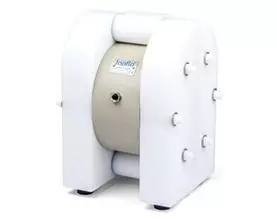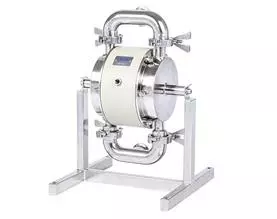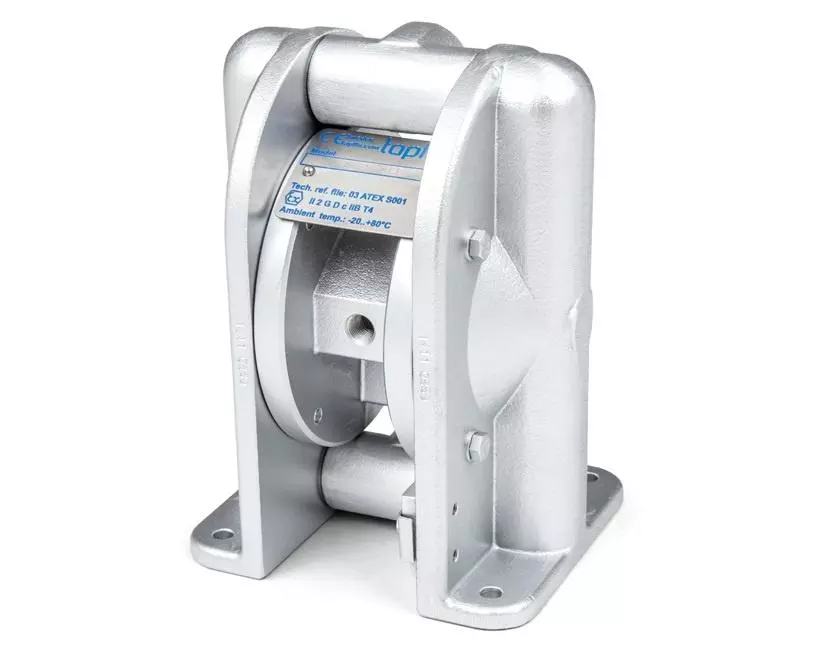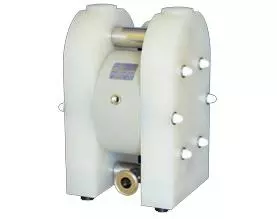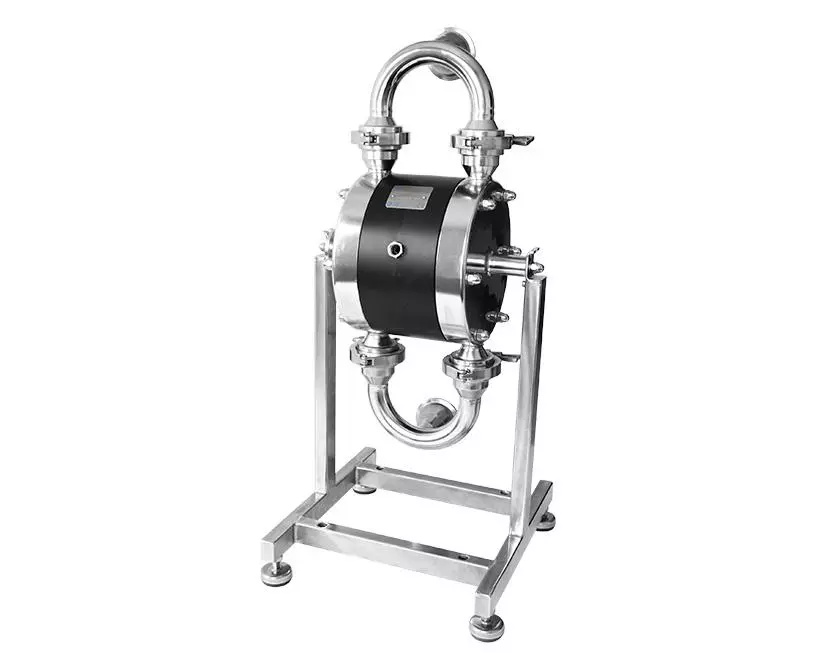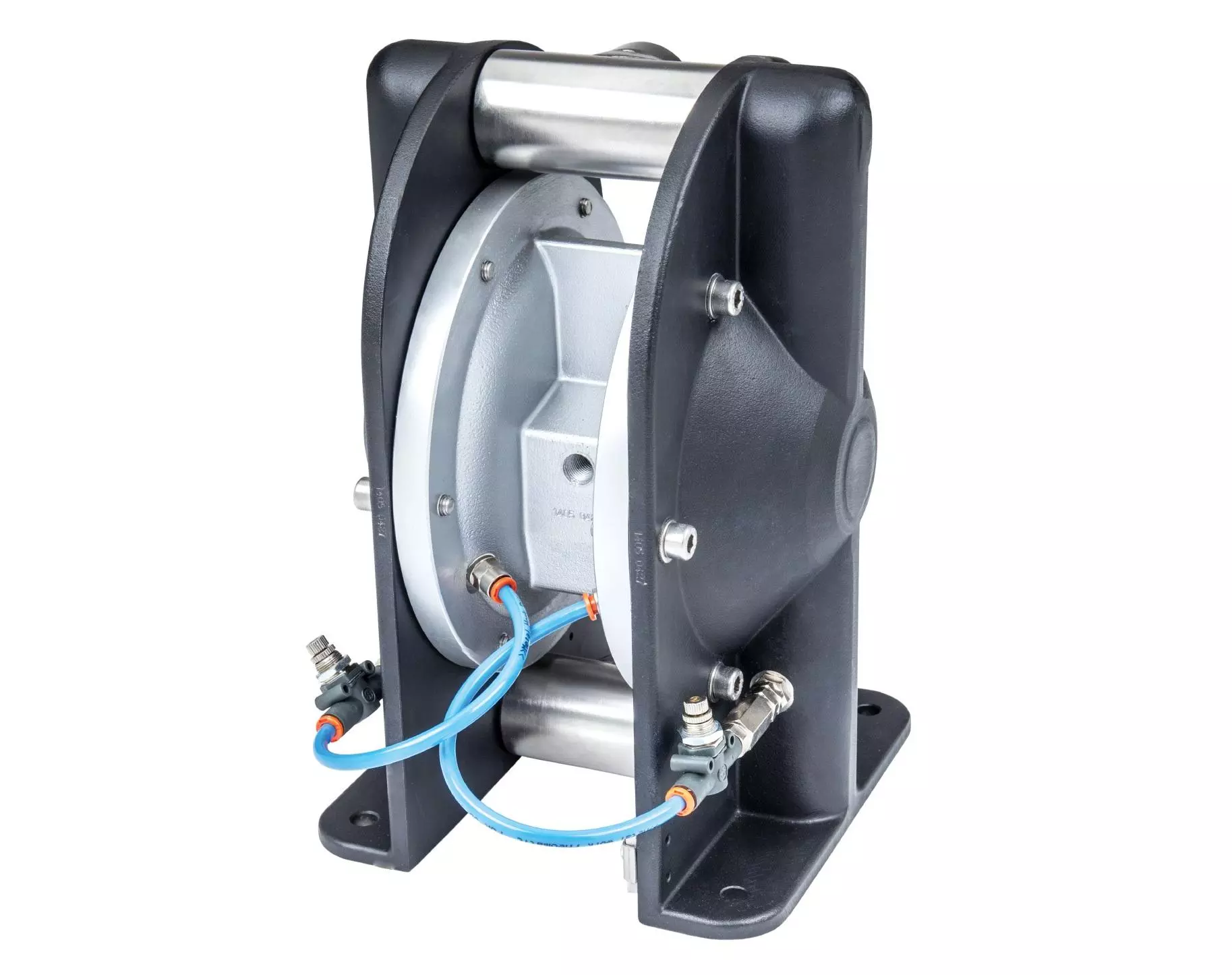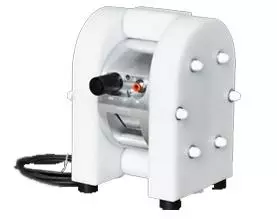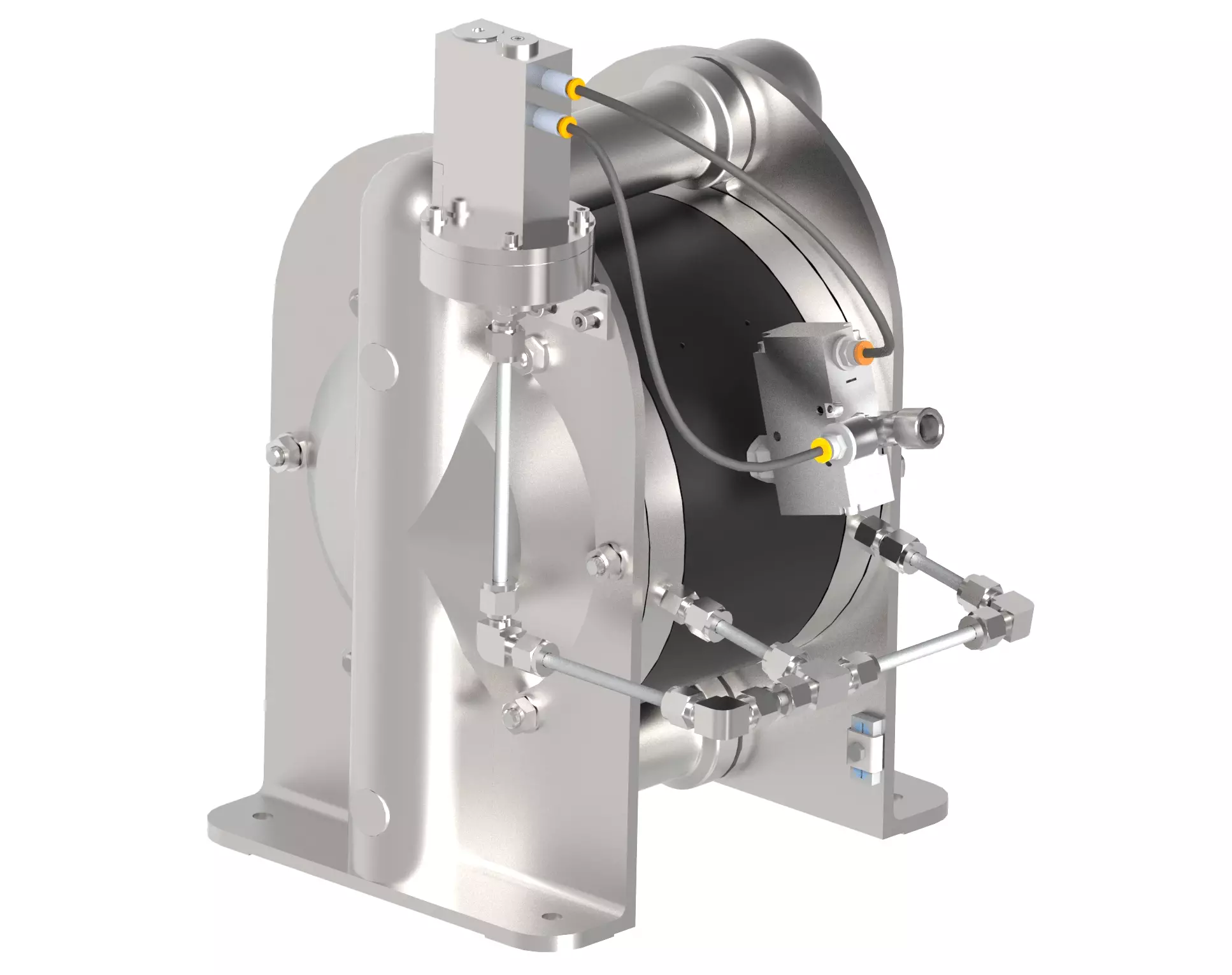Tapflo diaphragm pumps are some of the most versatile pumps on the market today. They can be used in variety of installations in numerous applications. Thanks to the simple operating principle, with a compact and reliable design, Tapflo diaphragm pumps meet the demands of heavy industrial duties.
PE & PTFE pumps
Made from polyethylene (PE) or virgin PTFE plastics are suitable for handling almost any kind of liquid whether it is viscous, chemically aggressive or with solids.
Sanitary pumps
The Tapflo sanitary series is particularly designed to meet the requirements of the food, beverage, pharmaceutical and cosmetic industries.
Metal pumps
The compact, smooth and simple design is common for this series. Materials available are aluminium, cast iron, stainless steel and PTFE coated aluminium.
Pharmaceutical pumps
The Pharmaceutical series is produced to serve the biotech- and pharmaceutical industries in numerous applications.
Aseptic pumps EHEDG certified
The series will be available in three sizes for sterile applications in primarily the pharmaceuticals, bio-technology and foodstuffs industries.
Powder pumps
The Tapflo powder transfer diaphragm pump can do the same job as many complex and large powder systems. The compact design also makes the unit portable.
TC Intelligent pumps
Based on standard Tapflo air operated diaphragm pumps but fitted with an power pack called LEAP® Technology. The LEAP® technology was developed for a ultra low flow high pressure applications
Accessories
Guardian systems. Control systems. Mobile solutions for pump units and systems. Filter regulator & needle valve kit. Pneumixer
FAQ
What is a Diaphragm Pump?
A diaphragm pump is a type of positive displacement pump that uses a flexible diaphragm to move the fluid. It provides a pulsating flow and is commonly used for various applications due to its versatility and ability to handle different fluids.
How does a Diaphragm Pump work?
Diaphragm pumps work by using the movement of the diaphragm to draw in and discharge the fluid. The diaphragm flexes back and forth, creating a vacuum that draws the fluid into the pump and then discharges it under pressure.
What are the advantages of using Diaphragm Pumps?
Diaphragm pumps offer several advantages, including self-priming capabilities, the ability to handle abrasive and viscous fluids, dry-running without damage, and excellent chemical resistance. One of the unique features of the air operated diaphragm pump is that it can stall under pressure without any damage.
What are the typical applications of Diaphragm Pumps?
Diaphragm pumps are widely used in various industries, including chemical processing, food and beverage, pharmaceuticals, wastewater treatment, mining, and oil and gas, for tasks such as fluid transfer, dosing, and metering.
Are Diaphragm Pumps suitable for handling corrosive fluids?
Yes, diaphragm pumps are well-suited for handling corrosive fluids. They can be constructed with materials such as PTFE or stainless steel and elastomers to withstand the corrosive nature of certain liquids
Can Diaphragm Pumps handle fluids with solid particles or abrasives?
Diaphragm pumps can handle fluids with suspended solids and abrasives. They are designed with self-cleaning mechanisms to prevent clogging and damage from abrasive particles. A wide range of materials of construction also provide excellent abrasion resistance.
How do I select the right Diaphragm Pump for my application?
When selecting a diaphragm pump, consider factors like flow rate, pressure requirements, fluid compatibility, temperature range, and the presence of any particulates or abrasive materials.
What are the maintenance requirements for Diaphragm Pumps?
Although the diaphragm pumps are equipped with wearing parts like diaphragms, valves, and seals they are mostly maintenance free. Keeping the pump clean and following the manufacturer's maintenance guidelines is essential for optimal performance.
Can Diaphragm Pumps handle high-viscosity fluids?
Yes, some diaphragm pumps are specifically designed to handle high-viscosity fluids. These pumps typically have larger pump chambers, heavier valve balls and slower stroke rates to accommodate thicker fluids.
Are there any safety considerations when using Diaphragm Pumps?
The air operated diaphragm pumps are one of the safest pump options on the market as they require no electricity to operate. When handling hazardous or flammable fluids, it is essential to ensure proper grounding and follow safety protocols. Also, avoid dry-running the pump for extended periods to prevent damage to the diaphragm and components.






